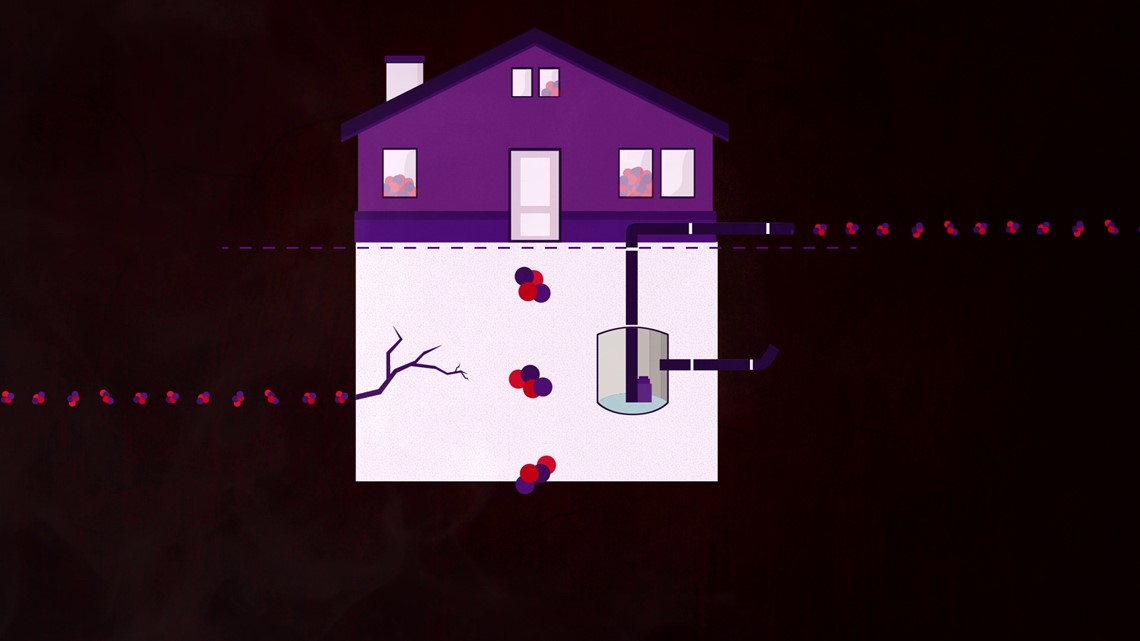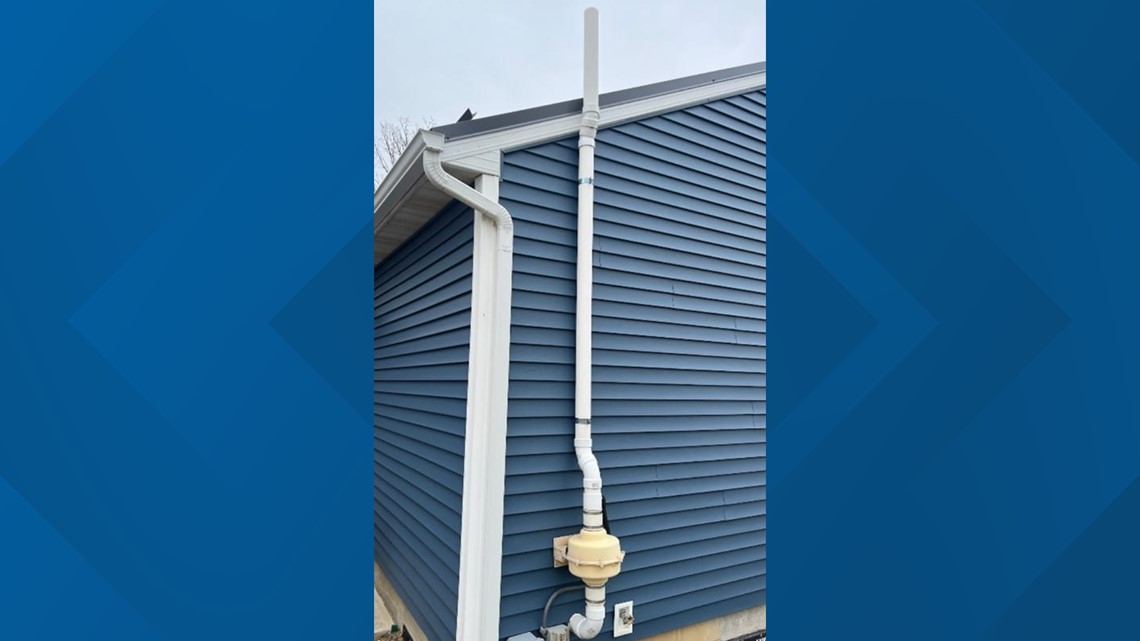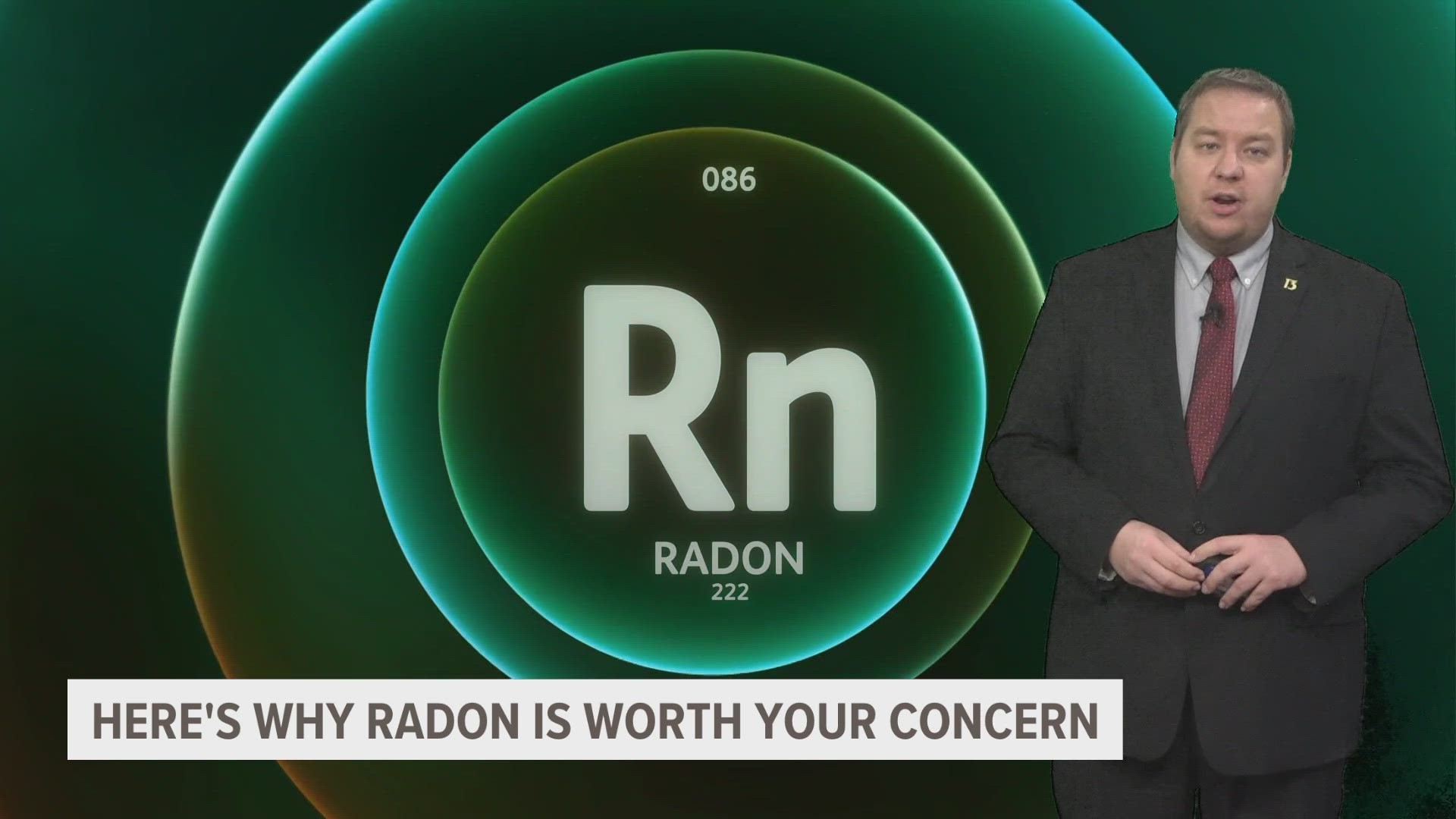GRAND RAPIDS, Mich. — It's likely that at some point, especially if you've purchased a home, you've heard the term radon before. But what exactly is this element and should you be concerned about it in your home?
To answer that question we are going to break down what radon is, how to detect it, and when you should take action to mitigate the effects!
The Question:
What is radon and should you be concerned about it?
The Why:
First, you should know that radon is a naturally occurring element that is found all around us every day. It forms from the breakdown of uranium in our soil that eventually turns into radon gas that can make its way into our homes. Radon has no odor, color, or taste, so the only way you can detect it is through proper testing.
In normal concentrations radon does not present a danger, but when concentrations become elevated it has the potential to impact our health. Specifically, prolonged exposure to radon gas is the number one cause of lung cancer for those who are not smokers.
Radon gas can make its way into your home through numerous routes, including cracks in your foundation, sump pumps, the heat difference between your house and the ground through home heating in the winter, or even strong winds blowing over your house creating a pressure differential.


So how do you test for high levels of radon gas? Testing kits are available for purchase at many stores and also sometimes through state offices and local health departments. You will not notice any early symptoms of radon exposure, with the only known impact of exposure being lung cancer development over time.
If a short-term test returns a positive result, the next step is longer-term testing. If results continue to show elevated levels of radon, you then need to explore mitigation options for radon gas.
The good news here is mitigating radon is a straightforward process. You don't need to sell your home or panic, but installing a powered radon ventilation system will likely be required. Following this install, retesting every few years is the best way to ensure this system is working properly.


For more information about radon and testing visit the Michigan EGLE at michigan.gov/radon.
-- Meteorologist Michael Behrens
Follow me on social media! Facebook Meteorologist Michael Behrens, X/Twitter @MikeBehrensWX, and Instagram/Threads @MikeBehrensWX.
Email me at: MBehrens@13OnYourSide.com
Have a 30-second video or still photo to share? We'd love to share it with everyone! Email your image to Weather@13OnYourSide.com or post it to our 13OnYourSide Facebook Page.
►Make it easy to keep up to date with more stories like this. Download the 13 ON YOUR SIDE app now.
Have a news tip? Email news@13onyourside.com, visit our Facebook page or X/Twitter. Subscribe to our YouTube channel.

